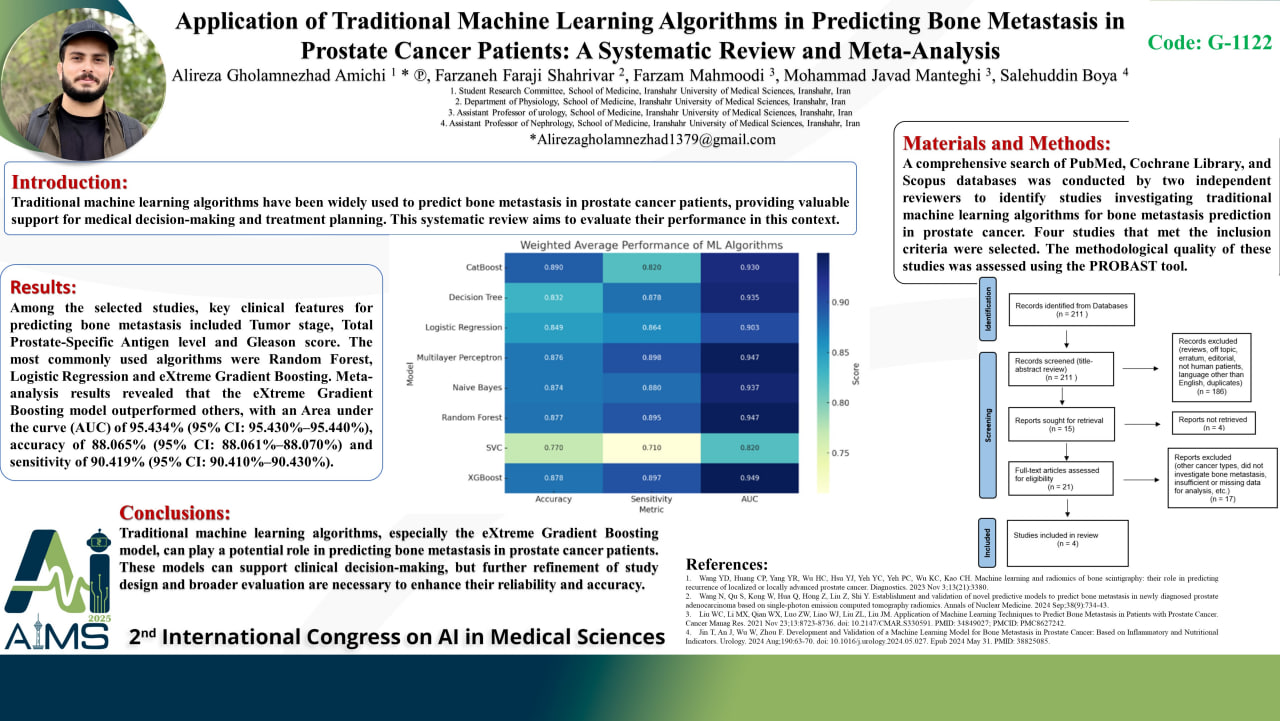Application of Traditional Machine Learning Algorithms in Predicting Bone Metastasis in Prostate Cancer Patients: A Systematic Review and Meta-Analysis
Code: G-1122
Authors: Alireza Gholamnezhad Amichi * ℗, Farzaneh Faraji Shahrivar, Farzam Mahmoodi, Mohammad Javad Manteghi, Salehuddin Boya
Schedule: Not Scheduled!
Tag: Biomedical Signal Processing
Download: Download Poster
Abstract:
Abstract
Background and aims: Traditional machine learning algorithms have been widely used to predict bone metastasis in prostate cancer patients, providing valuable support for medical decision-making and treatment planning. This systematic review aims to evaluate their performance in this context. Method: A comprehensive search of PubMed, Cochrane Library, and Scopus databases was conducted by two independent reviewers to identify studies investigating traditional machine learning algorithms for bone metastasis prediction in prostate cancer. Four studies that met the inclusion criteria were selected. The methodological quality of these studies was assessed using the PROBAST tool. Results: Among the selected studies, key clinical features for predicting bone metastasis included Tumor stage, Total Prostate-Specific Antigen level and Gleason score. The most commonly used algorithms were Random Forest, Logistic Regression and eXtreme Gradient Boosting. Meta-analysis results revealed that the eXtreme Gradient Boosting model outperformed others, with an Area under the curve (AUC) of 95.434% (95% CI: 95.430%–95.440%), accuracy of 88.065% (95% CI: 88.061%–88.070%) and sensitivity of 90.419% (95% CI: 90.410%–90.430%). Conclusion: Traditional machine learning algorithms, especially the eXtreme Gradient Boosting model, can play a potential role in predicting bone metastasis in prostate cancer patients. These models can support clinical decision-making, but further refinement of study design and broader evaluation are necessary to enhance their reliability and accuracy.
Keywords
Machine Learning, Bone metastasis, Prostate Cancer
